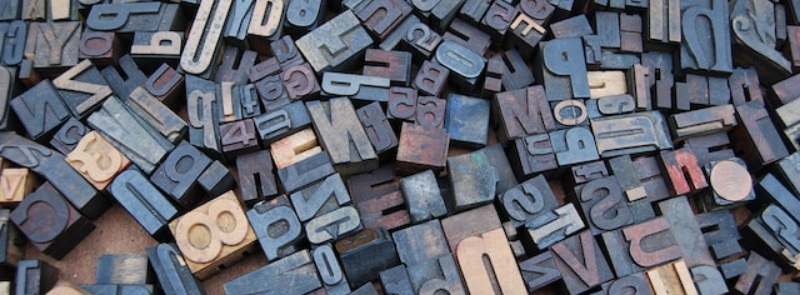
When It Occurs
Every March 4th
Official Website
Timeline
Days Passed (1086)
# Hashtags
#NationalGrammarDay #CorrectEnglish
Every year on March 4, National Grammar Day is joyously observed. While some view languages as something to celebrate, others may perceive grammar merely as a set of rules governing language construction. However, grammar is more aptly described as a system that facilitates language comprehension and learning. Grasping the intricacies of this system and its structure is instrumental in understanding languages and acquiring new linguistic skills. Despite the existence of rigid grammar rules, they serve as valuable tools for language acquisition. Therefore, National Grammar Day stands as an occasion to applaud the essence of grammar and enlighten individuals about its pivotal role in language.
History and Origins of National Grammar Day
-
Creation:
- National Grammar Day was founded in 2008 by Martha Brockenbrough, an author and founder of the Society for the Promotion of Good Grammar (SPOGG). Brockenbrough established the day to raise awareness about the importance of good grammar and to celebrate the role it plays in clear and effective communication.
-
Purpose:
- The primary purpose of National Grammar Day is to highlight the significance of grammar in everyday communication. It aims to encourage people to pay attention to their language use, learn more about grammar rules, and appreciate the nuances of the English language.
Significance of National Grammar Day
National Grammar Day holds significance for several reasons:
-
Promoting Clear Communication:
- Good grammar is essential for clear and effective communication. National Grammar Day emphasizes the importance of using correct grammar to avoid misunderstandings and to convey ideas accurately.
-
Educational Value:
- The day serves as an educational opportunity, particularly for students and language learners. It encourages the study of grammar rules and fosters a deeper understanding of the English language.
-
Celebrating Language:
- National Grammar Day is a celebration of the English language and its complexities. It provides a platform for language enthusiasts to discuss, learn, and share their love of grammar.
-
Encouraging Proper Language Use:
- The day encourages people to take pride in their language use and to strive for accuracy in writing and speaking. This can include correcting common grammatical errors, improving punctuation, and expanding one’s vocabulary.
How to Celebrate National Grammar Day
There are many ways to observe and celebrate National Grammar Day, each focused on improving language skills and enjoying the intricacies of grammar:
-
Learn About Common Grammar Mistakes:
- Take time to learn about and correct common grammar mistakes. This could include issues like subject-verb agreement, misuse of homophones (e.g., their/there/they’re), and improper punctuation.
-
Participate in Grammar Games:
- Engage in grammar-related games or quizzes. Many online platforms offer grammar challenges that can be both fun and educational. These activities help reinforce grammar rules in an interactive way.
-
Read and Write:
- Celebrate by reading books, articles, or essays that use excellent grammar. Alternatively, take the time to write something of your own, paying close attention to grammar, punctuation, and style.
-
Share Grammar Tips on Social Media:
- Use social media to share grammar tips, interesting language facts, or humorous takes on common grammar errors. Hashtags like #NationalGrammarDay can connect you with others who are celebrating the day.
-
Attend a Grammar Workshop:
- Some educational institutions, libraries, or writing centers may offer grammar workshops or seminars. Attending one of these can help you refine your language skills and learn new grammar techniques.
-
Correct Errors in Your Writing:
- Review your recent writing, whether emails, reports, or social media posts, and correct any grammatical errors. This can be a helpful exercise in improving your attention to detail.
-
Celebrate with a Grammar-Themed Event:
- Host or attend a grammar-themed event, such as a spelling bee, writing contest, or grammar trivia night. These events can be a fun way to celebrate the day with others who appreciate language.
-
Explore Grammar Resources:
- Take advantage of the wealth of grammar resources available online, such as grammar guides, style manuals, and educational videos. These can help you deepen your understanding of grammar rules and conventions.
Fun Facts About Grammar
-
Oxford Comma Debate: The Oxford comma, also known as the serial comma, is a comma used before the final "and" or "or" in a list. Its use is often debated among writers and editors, with some considering it essential for clarity and others viewing it as unnecessary.
-
Grammar Nazis: The term "Grammar Nazi" is often used (sometimes pejoratively) to describe someone who is overly critical of grammar mistakes. While the term is meant to be humorous, it highlights how passionate some people can be about correct language use.
-
Evolving Language: Grammar rules can change over time as language evolves. What was considered incorrect in the past may become accepted as standard usage in the future. For example, the split infinitive ("to boldly go") was once frowned upon but is now widely accepted.
-
Common Misconceptions: Some grammar "rules" are actually misconceptions, such as the idea that you should never end a sentence with a preposition or that "irregardless" isn’t a word (though it is nonstandard).
-
Longest Sentence: The longest sentence in literature is often attributed to James Joyce’s "Ulysses," which contains a sentence with over 4,000 words. This highlights the complexity and flexibility of grammar in creative writing.
Conclusion
National Grammar Day is a celebration of the English language and the rules that help us communicate clearly and effectively. Whether you’re a language enthusiast, a student, or simply someone who appreciates the importance of good grammar, this day offers an opportunity to learn, share, and enjoy the intricacies of language. By engaging in grammar-related activities, improving your writing skills, and spreading the love of language, you can make the most of National Grammar Day.


